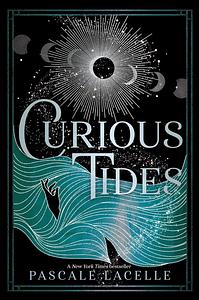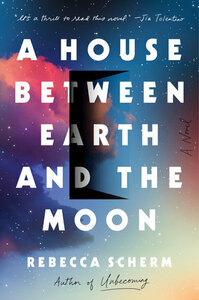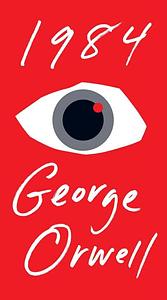Take a photo of a barcode or cover
nova_for_words's Reviews (101)
adventurous
challenging
dark
tense
medium-paced
Peter F. Hamilton’s The Great North Road is an epic standalone sci-fi novel that masterfully weaves together murder mystery, political intrigue, speculative technology, and interstellar adventure. Set a century in the future, humanity has cracked the code on interstellar travel through wormhole portals, and Earth is no longer the only home of mankind. But for all its technological brilliance, the future remains deeply entangled in human flaws—corruption, ambition, power struggles, and the quest for truth.
The story kicks off with the murder of a North family clone in Newcastle, a powerful dynasty of genetically identical successors whose influence stretches across planets. Detective Sidney Hurst takes center stage as the investigator of this politically volatile crime, and it’s through his eyes that we begin to unravel a mystery that spans across time and space. Meanwhile, Angela Tramelo, once convicted of a gruesome mass killing on the distant colony world of St. Libra, is pulled back into the spotlight when the new murder bears disturbing similarities to her case—and might prove her innocence. Or her claim that the real killer was an alien.
The pacing of the novel is slow at times, and Hamilton’s trademark world-building can be dense. The sheer volume of detail, while sometimes overwhelming, is ultimately rewarding. The narrative demands patience, but for those willing to stick with it, the payoff is enormous. What initially feels like a tangle of disparate storylines—police procedural, colonial exploration, clone politics, alien mythology—gradually fuses into a cohesive and satisfying conclusion. It’s a puzzle where every last piece clicks into place.
Hamilton doesn’t skimp on character complexity either. Sid is refreshingly grounded for a protagonist in such a grand-scale story, and Angela proves to be a nuanced figure whose past, motivations, and resilience give the story much of its emotional heft. The novel explores ideas of identity (especially through cloning), power dynamics, the ethics of imprisonment, and the burdens of truth and belief.
In short, The Great North Road is not a light read, but it is a rich one. For those who enjoy intricate plotting, slow-burn suspense, and immersive world-building, this novel delivers. It’s a story that asks for your time and attention—and rewards both.
adventurous
challenging
inspiring
lighthearted
slow-paced
Plot or Character Driven:
A mix
Strong character development:
Yes
Loveable characters:
Complicated
Diverse cast of characters:
Complicated
Flaws of characters a main focus:
Yes
Andy Weir’s The Martian is a gripping survival story set on the red planet, following astronaut Mark Watney after he's mistakenly left for dead during a mission to Mars. With no way to contact Earth and limited resources, Watney must rely on his ingenuity, scientific know-how, and wry humor to survive against the odds.
The novel shines in its portrayal of a resilient protagonist who approaches life-or-death situations with cleverness and sarcasm, making a science-heavy story surprisingly light and entertaining. Written largely in a log-entry format, the book reads almost like a blog — casual, humorous, and deeply personal. Watney’s voice is distinct and engaging, even as he faces one life-threatening obstacle after another.
However, while the book is undeniably enjoyable, it does stretch the boundaries of believability. The sheer number of catastrophes Watney endures borders on excessive, and yet he always seems to find a solution just in time. This can make the story feel overly convenient and formulaic at points. Additionally, some passages — especially those heavy on technical detail — tend to drag, slowing the otherwise fast-paced narrative.
Still, The Martian succeeds in what it sets out to do: entertain, inspire, and celebrate human ingenuity. It's a smart, funny, and mostly optimistic look at space exploration and the will to survive. Even if it sometimes feels more fictional than scientific, it’s a journey worth taking.
challenging
mysterious
medium-paced
Plot or Character Driven:
A mix
Strong character development:
Complicated
Loveable characters:
Complicated
Diverse cast of characters:
Yes
Flaws of characters a main focus:
Yes
Curious Tides is a dark academic fantasy novel set in a mysterious coastal university where magic is governed by the shifting cycles of the moon. Pascale Lacelle crafts a richly imaginative world filled with tides, secrets, and a deep undercurrent of betrayal. The story follows Emory, a struggling student who is inexplicably tied to powerful magic she doesn’t fully understand. Her quest to uncover the truth behind her powers and the dark lore surrounding the school quickly spirals into obsession, leading her to make costly choices—including betraying her last remaining true friend.
The book features a dual POV structure, though much of the focus remains on Emory. Unfortunately, her character can be hard to root for. Deeply flawed, willfully ignorant, and often self-righteous, Emory’s internal narrative occasionally grates on the reader—especially as her poor decisions compound. While Lacelle’s worldbuilding is compelling and full of originality (the lunar-based magic system is especially fresh), the book feels overlong, with several sections reading like filler rather than essential plot.
Side characters like Baz and Kieran add layers to the narrative, but even these dynamics can become frustrating. Baz, in particular, is consistently supportive, even risking himself for Emory’s sake—yet his loyalty is rarely rewarded. Meanwhile, Kieran’s manipulative tendencies are apparent early on, which diminishes the weight of the late-stage plot twist and further weakens Emory’s credibility as a protagonist.
Though not without its issues, Curious Tides offers enough intrigue and atmosphere to satisfy fans of magical academia and morally gray storytelling. The ending delivers a mild cliffhanger that promises more revelations in the second and final installment of the duology.
adventurous
challenging
hopeful
medium-paced
Plot or Character Driven:
A mix
Strong character development:
Yes
Loveable characters:
Yes
Diverse cast of characters:
Yes
Flaws of characters a main focus:
Complicated
Monica J. DeLoy’s The Song of Sunrise delivers a modern fantasy tale that blends political intrigue, high-stakes competition, and the personal journey of a bard forced into a world of violence. With its mix of alliances crumbling, enemies rising, and an underdog protagonist stepping into an unforgiving academy, this first installment sets the stage for what feels like an epic series to come.
Akemi Nox is an apprentice bard whose life changes forever when her biggest performance erupts into bloodshed. Driven by vengeance, she abandons music for military training, enrolling in an academy that forges the deadliest magic channelers. What follows is a brutal championship with everything on the line—not just power and glory, but survival itself. Akemi isn’t a natural warrior, and that’s one of the book’s strengths. She must grow, fail, and adapt, using her storytelling skills in clever ways that feel refreshing compared to typical fantasy heroines who excel at everything right away.
Worldbuilding is handled well, with a sharp edge of political tension running throughout. The fractured alliance between humans, elves, and underlings gives the story weight and raises the stakes of Akemi’s personal struggles. And while the pacing occasionally falters, the climax hits hard, closing on a cliffhanger that promises even higher stakes in the sequel.
The Song of Sunrise is an engaging fantasy debut with a flawed but compelling protagonist, an intriguing bard-centered twist, and enough suspense to keep readers hooked. Despite some hiccups in the romance subplot, the novel succeeds in laying a strong foundation for what comes next. Fans of competitive academy fantasies and character-driven journeys will find plenty to enjoy—and will likely be eager for book two.
challenging
reflective
slow-paced
Plot or Character Driven:
Character
Strong character development:
No
Loveable characters:
Complicated
Diverse cast of characters:
Yes
Flaws of characters a main focus:
Yes
Rebecca Scherm’s A House Between Earth and the Moon blends speculative science fiction with a deeply human drama, asking readers to confront the price of ambition, family loyalty, and our growing dependence on technology.
The story follows Alex Welch-Peters, a scientist whose obsession with creating super-algae to combat climate change has consumed his life and distanced him from his family. When Sensus, a massive tech corporation, offers him the chance to continue his research on Parallaxis—a luxury space station built for billionaires—Alex and a small group of fellow scientists take the leap. But Parallaxis is far from a paradise. Instead of stability, the pioneers face relentless demands, isolation, and the creeping realization that they are pawns in Sensus’s much larger experiment: developing an algorithm that can predict and manipulate human behavior.
On Earth, Alex’s family struggles in his absence, particularly his teenage daughter Mary Agnes, who longs to join her father but is left navigating adolescence in a collapsing world dominated by wildfire and invasive technology. Meanwhile, Tess, a psychologist hired by Sensus, watches the Pioneers obsessively—until her curiosity pulls her into their orbit, blurring the line between observer and participant.
Scherm’s novel shines in its exploration of human relationships under pressure and the ways corporations commodify both people and ideals. It’s an unsettling mirror of our modern world, where technological ambition often outpaces ethical reflection. The premise is compelling, and the book raises sharp, timely questions about climate change, surveillance, and the sacrifices we justify in the name of love or progress.
That said, the execution may test a reader’s patience. The pacing is deliberately slow, lingering on character introspection and psychological tension more than action or resolution. While this allows deeper insight into the cast, the lack of momentum and a somewhat unfocused ending may leave some readers unsatisfied, especially those expecting a tightly driven sci-fi thriller.
Ultimately, A House Between Earth and the Moon is less about futuristic spectacle and more about the flaws, obsessions, and contradictions that make us human. For readers who enjoy thoughtful, character-driven speculative fiction with a strong contemporary edge, this novel offers a chilling yet intimate reflection on the costs of progress.
challenging
mysterious
tense
slow-paced
Plot or Character Driven:
A mix
Strong character development:
Complicated
Loveable characters:
Complicated
Diverse cast of characters:
Complicated
Flaws of characters a main focus:
Yes
Burned Bridges launches a new series spotlighting Irene Rivers—formerly the formidable FBI Director from Gilstrap’s Jonathan Grave thrillers. In this installment, Irene trades the cutthroat politics of Washington for what she hopes will be a quiet life in rural West Virginia. But peace is short-lived when her young nephew discovers a corpse in a nearby cave, unearthing secrets that powerful enemies would kill to keep buried.
What follows is a tense, high-stakes thriller that blends small-town crime with the wide-reaching consequences of political power. Irene’s background as a seasoned FBI agent gives her the grit and skill to face what comes, but this time she’s on her own—no Bureau resources, no allies in DC, and no second chances if she fails.
Gilstrap’s writing is sharp and cinematic, packed with suspense and relentless pacing. The rural setting adds a layer of claustrophobia and danger, where enemies are closer than they appear, and even local law enforcement can’t be trusted. The personal stakes—protecting Irene’s family—make the story hit harder, pulling the reader in beyond the mechanics of the mystery.
While Burned Bridges follows many of the beats of a classic cop thriller, Gilstrap injects freshness by centering the story on Irene, a strong yet vulnerable lead navigating both family bonds and mortal threats. Fans of authors like Catherine Coulter and Patricia Cornwell will feel right at home, though newcomers may find some moments a little formulaic.
adventurous
emotional
reflective
medium-paced
Gilded Evils delivers a fast-paced dystopian fantasy in the vein of Legend and Divergent, while carving out its own unique identity. The story follows seventeen-year-old Marilou Norith, who joins a rebellion founded by her father with the goal of overthrowing a corrupt Emperor and creating a world without war or oppression. The weapon of choice is chillingly clever—a memory-erasing serum meant to reset the wicked into blank slates.
What begins as a noble mission quickly unravels when Marilou uncovers disturbing truths about the rebellion, the serum, and even the Emperor himself. Captured by the enemy’s most dangerous soldier—who proves far more complicated than expected—she’s forced to question everything she thought she knew, leading to a series of tense choices between loyalty, justice, and survival.
The novel thrives on its relentless pacing and sharp action scenes. Every chapter feels urgent, keeping the momentum high. While some of the plot twists can be predicted, they’re executed with enough weight and tension that they still land effectively, never dulling the impact of Marilou’s journey. The book is advertised as a romance, but in truth, it leans more toward themes of found family, trust, and betrayal. That choice works to its advantage, grounding the story in bonds that feel real and hard-earned.
If there’s a drawback, it’s that readers expecting a deeply layered romantic subplot may find themselves disappointed. Still, the narrative more than makes up for it with strong themes, tightly packed action, and a fresh spin on rebellion-centered dystopias.
Overall, Gilded Evils is a gripping read with a unique premise, dynamic pacing, and enough heart to keep readers turning the pages.
adventurous
slow-paced
Way of Stones is the second entry in Ryan Lanz’s Red Kingdom series, continuing the aftermath of the failed attack on Abalreen. Unlike the first book, which leaned heavily on action and fast-paced conflict, this installment slows down to explore the consequences of those battles and the shifting paths of its three central characters—Phessipi, Levas, and Rhael.
Phessipi struggles to lead her fractured band of rebels while searching for missing allies. Levas, once a proud Lord Commander, now finds himself disgraced and on the run, desperate to reclaim his place and honor. Rhael’s arc remains one of the most compelling: once a hunter of the Corrupted, he must now live with the stigma of becoming one himself, torn between survival, loyalty, and betrayal.
The story unfolds more deliberately than its predecessor. While the reduced action and slower pacing may not appeal to readers expecting nonstop battles, this book invests in character growth, inner conflict, and worldbuilding. The sense of adventure is still alive through the characters’ travels and shifting alliances, and the groundwork laid here hints at bigger confrontations to come. The cliffhanger ending also sets the stage for more intensity in the next volume.
Overall, Way of Stones feels like a transitional book in the series: less flashy than the opener, but important for fleshing out motivations, loyalties, and the cost of survival. It rewards patient readers who enjoy deeper character development and sets up the potential for an even stronger continuation.
challenging
reflective
slow-paced
Plot or Character Driven:
A mix
Strong character development:
Complicated
Loveable characters:
Complicated
Diverse cast of characters:
Yes
Flaws of characters a main focus:
Yes
George Orwell’s 1984 stands as one of the most recognized and frequently discussed dystopian novels of all time. Set in a bleak, totalitarian future, it follows Winston Smith as he quietly rebels against a regime that controls not only actions but thoughts, memories, and even the definition of truth itself. From the omnipresent gaze of Big Brother to the shadowy enforcement of the Thought Police, Orwell paints a world where individuality is erased, history is rewritten, and obedience is absolute.
The novel’s themes—propaganda, surveillance, and manipulation—remain its greatest strength, offering a sobering warning about how fragile truth can be. Its influence on modern language and political commentary is undeniable, with terms like “Orwellian” and “Big Brother” embedded in everyday conversation.
However, as a reading experience, 1984 can be challenging. The pacing often slows under the weight of political exposition, and the plot’s trajectory is largely predictable. While the underlying message is still valuable, its direct relevance to the modern world can sometimes feel overstated. The story works best as a philosophical cautionary tale rather than a gripping narrative.
slow-paced
Plot or Character Driven:
N/A
Strong character development:
No
Loveable characters:
No
Diverse cast of characters:
N/A
Flaws of characters a main focus:
N/A
As the latest entry in James Rollins’s long-running Sigma Force series, Kingdom of Bones promises high-stakes adventure, exotic settings, and the signature blend of science, history, and action the author is known for. The premise is undeniably gripping—set deep in the Congo, a mysterious phenomenon is reversing the natural order, dulling human minds while accelerating the evolution of plants and animals into cunning, deadly predators. The threat spreads outward, and Commander Gray Pierce and his team must race to uncover the truth before it consumes the world.
The opening chapters set the stage for an intriguing mystery, with an eerie atmosphere and the promise of dangerous exploration. Rollins’s research is evident on every page; he dives deep into science, history, and African ecology, weaving fascinating facts into the story. For some readers, this meticulous attention to detail will be a strength, grounding the more fantastical elements in believable science.
Unfortunately, the novel’s pacing doesn’t always match its premise. While there are moments of genuine action and tension, large portions of the book are bogged down by dense exposition and sudden bursts of information that feel more like lectures than revelations. This slows the momentum, especially for those expecting a tight, pulse-pounding thriller. The balance between storytelling and research leans heavily toward the latter, sometimes at the expense of character development and emotional stakes.
For longtime Sigma Force fans, Kingdom of Bones offers familiar faces and the comfort of returning to a beloved cast, but it also shows signs of fatigue. With so many installments in the series, the spark of originality feels dimmer here, and the urgency that once defined these adventures is harder to sustain.
Overall, Kingdom of Bones has flashes of the adventurous spirit that made the Sigma Force series a bestseller, but it struggles under the weight of its own ambition and over-explanation.
The opening chapters set the stage for an intriguing mystery, with an eerie atmosphere and the promise of dangerous exploration. Rollins’s research is evident on every page; he dives deep into science, history, and African ecology, weaving fascinating facts into the story. For some readers, this meticulous attention to detail will be a strength, grounding the more fantastical elements in believable science.
Unfortunately, the novel’s pacing doesn’t always match its premise. While there are moments of genuine action and tension, large portions of the book are bogged down by dense exposition and sudden bursts of information that feel more like lectures than revelations. This slows the momentum, especially for those expecting a tight, pulse-pounding thriller. The balance between storytelling and research leans heavily toward the latter, sometimes at the expense of character development and emotional stakes.
For longtime Sigma Force fans, Kingdom of Bones offers familiar faces and the comfort of returning to a beloved cast, but it also shows signs of fatigue. With so many installments in the series, the spark of originality feels dimmer here, and the urgency that once defined these adventures is harder to sustain.
Overall, Kingdom of Bones has flashes of the adventurous spirit that made the Sigma Force series a bestseller, but it struggles under the weight of its own ambition and over-explanation.








